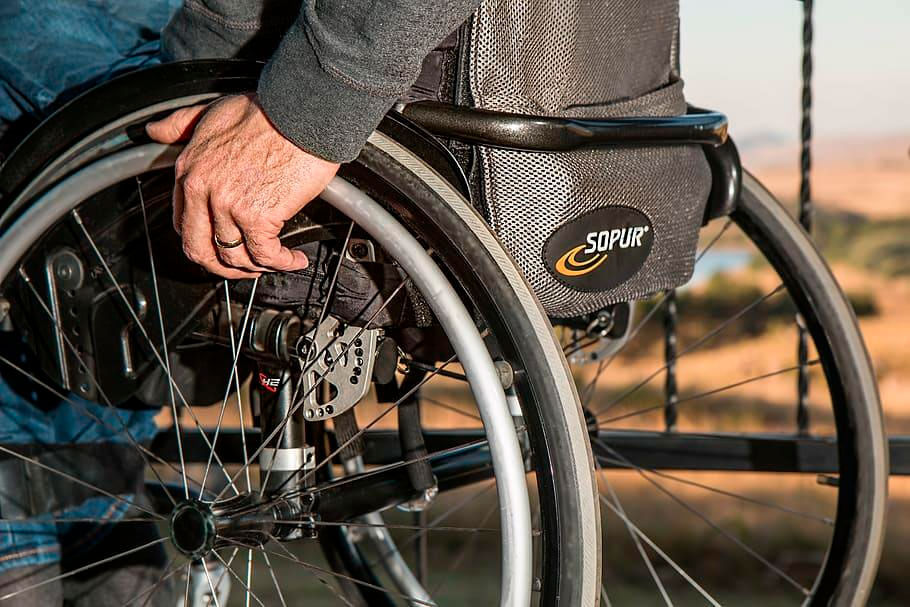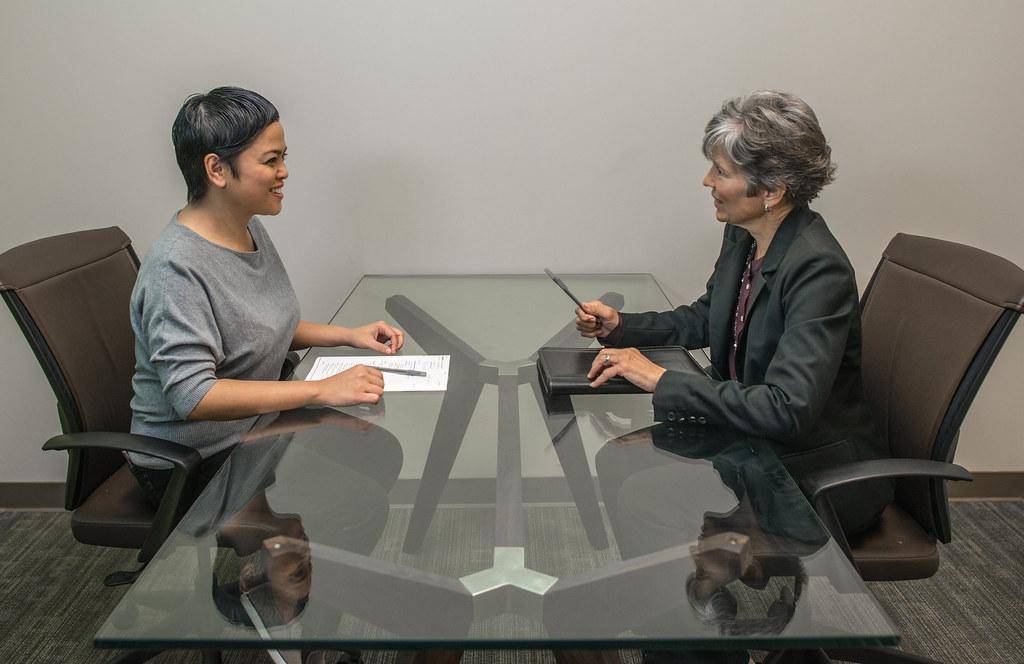An upcoming disability interview can be daunting for most individuals. It is difficult to gauge exactly what to say, how to say it, and what to avoid mentioning. In this article, we’ll be discussing what not to say in a disability interview.
During a disability interview, avoid making generalizations and try to be more specific. You should also avoid exaggerating your symptoms or condition. Lastly, it’s important to remember to be honest during the interview.
Keep reading below for more information.
Things to Know Prior to the Interview
To maximize your chances of passing the Social Security Disability Insurance (SSDI) interview and thereby receiving benefits, you should do the following:
- Preparation
- Consult a lawyer
Getting a Lawyer
Is it really necessary to get a SSDI lawyer involved? Having a lawyer on your side increases your chances of having your benefits claim approved by three times, according to research conducted by the Government Accounting Office (GAO).
The stakes are too high to disregard such odds. Any fee arrangement reached between a lawyer and a client for the purpose of representing that client in a benefits claim must also be approved by the government.
No SSDI attorney fees will be due if your case does not succeed and you do not collect benefits.
Preparing for the Interview

Now that we’ve covered the importance of getting a lawyer, let’s discuss how to prepare for an SSDI interview.
Being ready for your interview will improve your chances of getting the job and make the process go more smoothly. Follow these guidelines to ace your disability interview.
You should come prepared for your in-person interview with all your documentation, including your medical documents. Or, if you’ll be having a phone interview, keep them nearby so that you can reach them easily. Your interviewer might want to go over them.
Bring all essential paperwork filled out to the interview. When filing for disability benefits through Social Security, you are required to submit an Application for Disability Insurance Benefits (Form SSA-16-F6).
Get formal, certified declarations from your healthcare professionals that detail the specifics of your illnesses as well as your diagnosis. This supplementary research verifies that your disability impairs your capacity for employment and daily functioning.
Make sure you make it to your in-person interview on time by arriving 10 minutes early. It is respectful to arrive on time. Also, you should dress professionally in modest attire.
If you have an SSDI phone interview scheduled, you should be ready for the call at least 10 minutes beforehand.
To avoid interruptions from things like the TV, radio, or young children, choose a quiet place to do the interview over the phone.
What Documentation Do I Need for the Interview?
If you have an in-person interview scheduled or are conducting a phone interview, be sure to have the following materials and information on hand:
- A valid government ID.
- Certificate of birth.
- A detailed account of your health history, including the date at which your illness or injury rendered you unable to work. Be as detailed as you can. The Social Security Administration uses this record to help decide if your disability qualifies you for benefits.
- The hospitals and clinics where you’ve been treated. Make sure to record the dates of treatment and the names, addresses, and phone numbers of the medical facilities where you received them. Include the initial medical facilities that provided care for your disability; doing so will help establish the date of your disability’s onset, which is critical for calculating back pay.
- What medications you are currently taking and how much of each you are taking.
- Details about any and all medical tests you’ve undergone, along with the dates and locations at which they were administered.
- The 15 years of work experience prior to the onset of disability. Strive for pinpoint accuracy. Avoid the phrase “I believe I worked here in 2010.” You should say something like, “I worked here from January to November of 2010.” Again, it’s crucial to document these details. The pressure of an interview can cause even the most prepared candidate to forget or misstate an important detail of his or her work history.
Commonly Asked Questions During a Disability Interview

You can expect to be asked a series of easy questions by the insurance company. Your answers to these questions will be recorded and used for evaluation purposes. The interviewer may already be aware of some of the responses. The interviewer may look up information about you in your medical records.
The SSA has likely conducted extensive background research on you and even monitored your every move. If you have been posting on social media—something we strongly advise against doing—your responses must be consistent with what you have posted.
You can count on being bombarded with easy questions like, “What medications are you taking?” “How many different doctors are you currently seeing?” “When are you scheduled to see a doctor again?” “When was the last time you saw a doctor?”
But here are some tricky ones:
How Is Your Health Doing These Days?
Don’t hide the fact that you’re feeling better if you actually are. Describe the changes, both positive and negative. “Improved” is a very general word. The word “changed” implies the same thing. A change may indicate that your health has deteriorated.
Don’t be reluctant to share your experience of living with your illness. Although no one enjoys the label of “complainer,” this is one instance in which it’s best not to minimize the discomfort caused by things like pain, exhaustion, or other health issues that prevent you from working.
Describe a Normal Day for Me.
You can expect to be asked a variety of questions about your typical day by the insurance company. Questions will range from how you take care of yourself to what you like to do in your spare time.
The simplest way to do this is to select a recent day and describe your activities from dawn until dusk. You can begin at 7 a.m. when your day begins and continue until 10 p.m. when you go to bed.
How Do You Socialize with People?
The interviewer will also be interested in learning about your social life, athletic interests, volunteer experience, and religious affiliations. Although disclosing such pursuits will not terminate your insurance coverage, the insurance agent will inquire how long you can engage in such pursuits compared to your profession.
What Symptoms Do You Have?
The representative will need to know exactly what symptoms you experience, how often you experience them, and how you handle them. Take advantage of this opportunity to describe what it’s like to walk a mile in your shoes. Describe some of the things you can no longer do.
Have You Made Any Future Plans?
Having a general notion of how you want to get from where you are currently to where you’re hoping to be is helpful in situations like this. If you are unable to resume your prior employment, you can consider going back to school (once you’re able) in order to pursue a different field of work.
It can harm your reputation with the insurance provider if your sole objective is to rewatch your favorite movies at home.
What Not to Say in a Disability Review
In this section, we’ll discuss what not to say during a disability review.
I Can’t Find a Job/Nobody Will Hire Me.
The Social Security disability program is intended to assist those who have disabilities that render them either mentally or physically unable to retain employment. How difficult the job market is at the moment is irrelevant to the SSA. It is a grave error to imply that you might work if anybody hired you.
Those who are down on their luck and looking for work should not apply for SSDI. Having a disability so severe that it prevents you from working is not something to be ashamed of, despite the fact that many people will say differently out of their own insecurity.
Your claim for SSDI will most likely be denied if the judge determines that you have the ability to work.
My Disability Is Not Being Treated by a Doctor.
In order to qualify for disability benefits, you must be visiting a doctor for your mental or physical disabilities. Your credibility and eligibility for benefits may suffer if you avoid medical attention.
Keeping accurate medical records is crucial, and if you decide to stop a treatment regimen because it is not working, you will need to provide evidence to support your decision.
I’ve Been Involved in Crimes or Drug Abuse in the Past.
It is preferable to remain silent on the matter until the interviewer specifically asks if you have ever struggled with substance misuse or have a criminal history.
Why? The interviewer’s impression of your character could be tainted even if this information has no bearing on your current condition. Always give an honest response to questions and outline the efforts you did to improve yourself.
I Can Do Chores.
The interviewer may inquire as to whether or not you are able to clean your place, take a shower, or prepare your own meals. Instead of making generalizations like “Yes, I am able to do chores,” be more specific about what you can accomplish and how often.
For instance, you might only be able to prepare meals twice per week, with your family stepping in on the other nights when it’s just tough for you to leave the bed. Yes, you might occasionally be physically able to go for short walks, but you need to be honest about your strengths and weaknesses.
I’m In Extreme Pain and Can’t Stand It.
Your case will be successfully resolved based on how you build and present the proof, not just the data you provide with your claim. You need a legal team with the assets and expertise to do this.
Exaggerating the severity of your symptoms won’t increase the likelihood that your application will be accepted. In fact, claimants who report unrelieved, chronic pain may not do well in the eyes of the (ALJ) Administrative Law Judge.
Falsifying pain reports during a disability hearing is a bad idea. The way your impairment prevents you from engaging in routine daily tasks should be your main concern, despite the fact that you may surely be in discomfort.
Your credibility will be damaged if you assert falsely that you experience pain 24 hours a day, especially if your assertions are unsupported by medical documentation.
Tips for Answering Disability Questions

Here are some tips to keep in mind when answering questions in a disability interview:
- It’s crucial to be 100% truthful while responding to a disability interviewer’s questions. Don’t make false claims or exaggerate your condition.
- The interviewer will probe to learn about your medical history, symptoms, and effects on your everyday life and capacity to function. You can be specific in your responses, but avoid overstating or exaggerating.
- Don’t lie to the interviewer if he or she asks if there’s anything you can’t do when you know you can. You should go into more detail instead.
- If the interviewer asks whether you can walk and whether you can go small distances with a walker or cane, then you should tell them that. If the interviewer asks whether you can sit in a chair and use a computer, and you are able to, although for a short period of time, explain that you’re able to do so for 15 or 30 minutes at most before the pain becomes unbearable.
- Be free to elaborate on your responses and thoroughly explain how your restrictions affect your day-to-day life and your capacity to perform your job.
Disability Interview: What’s Next?
During your disability interview, the claims representative will look through the following non-medical requirements to determine if you are eligible for benefits:
Age, employment history, relationship status, citizenship, place of residence, Social Security information, as well as proof of income and assets.
The claims representative will then forward your disability claim to a Disability Determination Services (DDS) examiner for review.
Conclusion
So, while a disability interview is difficult, it’s easy to go through it successfully once you’re fully prepared. And part of being fully prepared is knowing what not to say in a disability review. We hope this guide was helpful in this regard.


